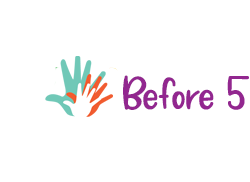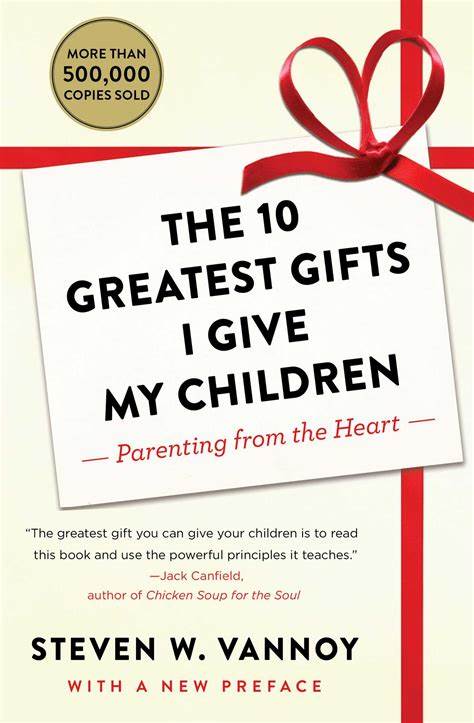This Gift! If I could wave a magic wand, I would give every child this gift. Here’s what Steven Vannoy shares about self-esteem in his book, “The 10 Greatest Gifts I Gave My Children,” When you have high (I’m going to substitute the word “healthy” here) self-esteem you are nearly invincible. No matter what happens, you still know that you are a good and capable person, that you can do what you need to do again and even better. You have a rich supply of inner strength. You approach every moment, every event, every interaction with an attitude of openness instead of fear, giving instead of taking, acknowledging your strengths rather than your weaknesses. You see abundance and opportunity instead of shortage and trouble.”
Having a healthy self-esteem helps us to look at life’s bumps as opportunities. Imagine talking with your little ones about seeing something that’s not going well as a chance to make things better instead of viewing it as a problem. Not to be Pollyannish here but teaching children to think “about finding solutions rather than focusing on the problem” helps them to be more optimistic and better set up to find a solution or, at the very least, improve things.
Remember the book “The Little Engine That Could” by Watty Piper? This book is about a little blue engine that helped a broken train, and its’ cars filled with goodies for children, climb up a mountain. The little engine worked hard pulling the broken train but wasn’t sure if she could make it up the mountain. She kept telling herself the whole way, “I think I can, I think I can.” The little blue engine kept trying and trying, and slowly, they all made it to the top of the mountain! This delightful children’s book was written in the 1930s to teach children about optimism and hard work. This story is also a beautiful example of positive self-talk, not giving up, helping others, and being kind.
Merriam-Webster defines self-esteem as a feeling of having respect for yourself and your abilities. How, as parents, do we help lay a foundation for our children that empowers them to develop (some seem to be born with it) a healthy view of themselves? This is not about being arrogant but understanding and believing in oneself. We all have things that we do that come naturally and are easy for us, and other things, oh golly, we have to work hard at! But having strong inner confidence helps us feel hopeful that we can do it and often leads to better results.
Vannoy tells us, “When you give love messages, you’re boosting your child’s self-worth. When you focus on your child’s strengths rather than their weaknesses, their self-confidence can only rise. When you teach and co-discover through questions instead of telling, children find their world of their own creativity, talent, and abilities they might otherwise never have discovered or acknowledged.”
I love this. Still, also, this encouragement needs to be authentic and the right amount; choosing your words carefully is essential.
This chapter closes with a great quote from Henry Ford,” Whether you believe you can or can’t, you’re right!”
**Here’s a YouTube link for the timeless book, “The Little Engine That Could.” This is a read-aloud book. Put your little one on your lap and snuggle in and enjoy this remarkable story.



